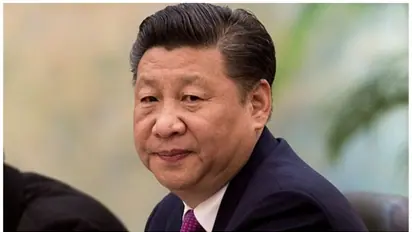Chinese President Xi Jinping asserts technological supremacy, says ‘No force can stop China's technology’

Synopsis
Chinese President Xi Jinping reaffirms China's technological prowess amidst global debates on supply chain security and national interests, emphasizing independence and collaboration in a rapidly evolving technological landscape.
Chinese President Xi Jinping recently met with Dutch Prime Minister Mark Rutte, addressing China's steadfast commitment to technological advancement amidst growing international pressures. Xi's statements gain significance against the backdrop of concerns regarding export licensing requirements affecting advanced semiconductor technology.
The Netherlands' decision to impose export licensing requirements on crucial chip production machinery reflects broader discussions on technology transfer and national security. Xi emphasized the potential consequences of barriers and supply chain fragmentation, warning against division and confrontation while advocating for open and collaborative technological ecosystems.
Chinese President Xi Jinping said, “The Chinese people also have the right to legitimate development, and no force can stop the pace of China's scientific and technological development and progress.”
The conversation also touched on China's stance regarding the ongoing conflict in Ukraine. Rutte urged discreet diplomatic efforts, recognizing China's influence in shaping events. Additionally, discussions included concerns over national security, particularly in relation to Dutch semiconductor giant ASML's potential relocation due to policy concerns, highlighting the delicate balance between economic growth and security considerations.
Xi's reaffirmation of China's commitment to technological sovereignty aligns with global debates on technological innovation, supply chain security, and geopolitical tensions. China's push for self-reliance and resistance to external coercion resonate in discussions surrounding technological sovereignty and economic resilience.
Foreign ministry spokesperson Wang Wenbin said in January, “China always opposes the U.S. overstretching the concept of national security and making various excuses to coerce other countries into imposing a technological blockade against China.”
Check the Breaking News Today and Latest News from across India and around the world. Stay updated with the latest World News and global developments from politics to economy and current affairs. Get in-depth coverage of China News, Europe News, Pakistan News, and South Asia News, along with top headlines from the UK and US. Follow expert analysis, international trends, and breaking updates from around the globe. Download the Asianet News Official App from the Android Play Store and iPhone App Store for accurate and timely news updates anytime, anywhere.